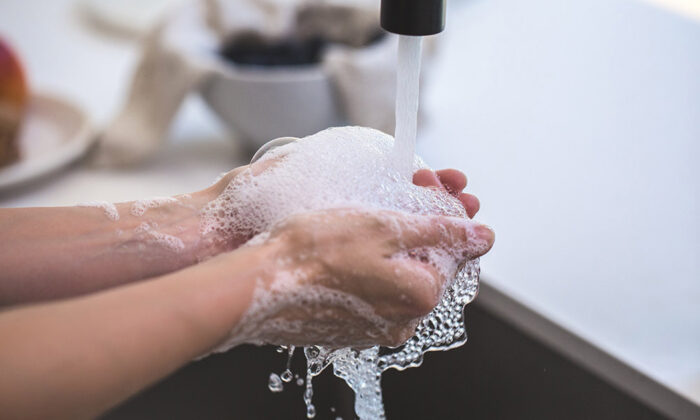Bola Ileola, a Lagos-based writer, had been bathing with medicated soaps and antiseptics for about three years. She would bathe with Dettol soap and then add Dettol antiseptic liquid to her bathing water.
Ileola told FIJ she had to switch from mild and non-medicated soaps when her skin became itchy after each bath between 2019 and 2020.
She also said she had always had skin-related issues before then, but it was unusual for her to experience after-bath itches.
“I used different medicated soaps and antiseptic liquids because I was desperate. I even had to stop using a sponge for a very long time. I deduced that it was because I had just relocated to a new state, but the itches never stopped till today. So, I just got used to Dettol and always used the medicated soap and liquid, hoping that my skin would be rid of the itches,” she said.
You can then imagine Ileola’s surprise on Wednesday when she saw a Twitter post that explained why using medicated soaps or antiseptics, which she had been using for over two years for daily baths, is not good.
READ ALSO: EXPLAINER: Not What You Think. How Young People Get ‘High’ From Balloon Gas
WHAT HARM?
As seen in the post by @subpharmacist, a pharmacist and Twitter user, the skin contains some beneficial bacteria called microflora or normal flora.
These bacteria, the pharmacist said, prevent pathogenic organisms from colonising the skin by competing with them.
Checks by FIJ showed that a pathogenic organism is capable of causing diseases in a person.
According to the pharmacist, we unknowingly harm the bacteria on our skin when we use medicated soaps and antiseptics for our daily baths.
“Also, most antiseptics and medicated soaps can easily upset the pH balance of your skin as they’re usually strong. They strip your skin of its natural oil and leave it scaly and dry,” the pharmacist explained.
“Finally, it’s important you know that these medicated soaps/antiseptics are called so because they’re antibacterial. Using them to take your daily bath is like you giving your skin a tiny dose of antibiotics every day.
“In your mind, it will deal with just the bad guys, but the truth is, it’s not really strong enough to wipe out the bad guys, but it’s strong enough to upset the balance of the skin’s normal flora.”
He added that instead of actually killing the disease-causing bacteria, the medicated soaps and antiseptics make them much stronger and more resistant.
“When you have a cut in your hand or so and it happens to be infected, you will be dealt with [because] you have been training the microbial organisms on your skin with a tiny dose of antibiotics every day — every morning and night — when you bath.”
NON-MEDICATED VERSUS MEDICATED SOAPS AND ANTISEPTICS
The recommended bathing soaps, according to the pharmacist, are normal, non-medicated soaps.
“They are effective, milder and better for your skin,” he noted.
On the use of medicated soaps and antiseptics, he said they could be used to disinfect certain medical or surgical equipment.
“The dose that is used here (for medical or surgical equipment) is different. It’s not the small cap that you will put in your full bucket of water,” he explained.
“Also, they can also be used in disinfecting surfaces and materials that need disinfecting. If you use that level on your skin, it will burn your skin.”
READ ALSO: ALERT: PrimeZEN Black 6000, a Male Enhancement Capsule, May Put Your Life at Risk
Meanwhile, FIJ spoke with Gbenga Jegede, a medical doctor at Family and Friends Hospital, who confirmed that the excessive use of medicated soaps can give room for harmful bacteria to thrive.
“Excessive use of medicated soap wash away all the microflora (which are beneficial to us), thus giving room to those bacteria that are harmful to grow,” said Dr Jegede.
“As the name implies, they are medicated. That means they are antibacterial, antifungal, anti-parasitic, anti-insecticidal, etc. They are used for fungal, bacterial, insecticidal, or parasitic skin infections. They clear off skin irritants as well.
“They are also used where there is overwhelming growth of normal flora on the skin (overgrowth of normal flora can cause subtle infection).”
He also mentioned that most of the compounds present in such antibacterial soaps are often used in sanitizers.
“Triclosan and triclocarban are the most common compounds used as antibacterials in soaps. However, other common antibacterial ingredients in soaps include benzalkonium chloride, benzethonium chloride, and chloroxylenol,” he said.
Subscribe
Be the first to receive special investigative reports and features in your inbox.















